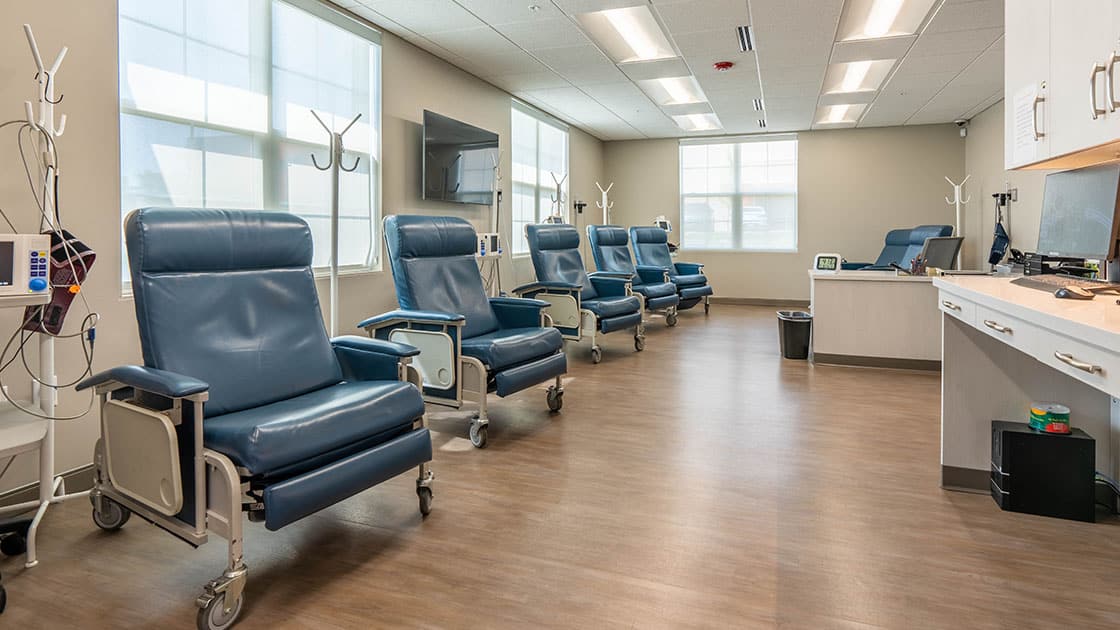
Oral & Facial Surgery Associates, LLC, in Cincinnati, OH provides a variety of sedation options for oral surgeries, including local anesthesia, IV sedation, and general anesthesia. Call 513-791-0550 or send us a message and we will respond as soon as possible.
What Is Sedation Dentistry?
Sedation dentistry involves the use of medications to create a relaxed state during oral surgery. Sedation dentistry relieves stress, eliminates pain, and often ensures patients do not remember oral surgeries. Depending upon the type of sedation used, patients may remain conscious, but in a “twilight sleep,” or may be asleep during surgical procedures.
Benefits of Sedation Dentistry in Oral Surgeries
Sedation dentistry is an invaluable tool in helping patients overcome dental or surgical fears. By inducing a relaxed state, patients can undergo essential surgeries and procedures without experiencing tension, anxiety, or pain. In addition, sedation for oral surgeries offers benefits such as:
- Oral surgeons can work more efficiently
- Reduces gag reflex
- Results in anterograde amnesia (patient does not remember the procedure)
- Assures enhanced comfort for patients
Why Choose Oral and Facial Surgery Associates, LLC?
At Oral and Facial Surgery Associates in Cincinnati, our team is highly trained in sedation and anesthesia. Our practice recertifies in the Office-Based Emergency Airway Management (OBEAM) course each year. In addition, all surgical assistants in our practice have earned credentials from the Dental Anesthesia Assistant National Certification Examination (DAANCE).
At our state-of-the-art oral surgery practice, we prioritize safety, comfort, and successful outcomes from all oral surgery procedures. Our highly experienced oral surgeons leverage the power of advanced technologies to ensure precision, efficiency, and safety during oral surgery procedures.
Sedation Options at Oral and Facial Surgery Associates, LLC
Local Anesthetic
Local anesthetic is the mildest form of anesthetic used at our office. It is administered in the area where the surgery is to be performed, typically by injection. Depending on the procedure, local anesthetic may be used in combination with another type of anesthesia. Local anesthetic is frequently used in simple oral surgery procedures, such as minor soft tissue treatments or simple tooth extractions.
IV Sedation
IV sedation, also known as “twilight sedation,” is similar to general anesthesia, in that it is administered through intravenous lines. IV sedation enables you to tolerate your treatment and feel comfortable and may result in your not remembering the procedure itself. IV sedation is a form of conscious sedation, meaning that you will be awake, but in some cases you may feel relaxed enough to drift in and out of sleep.
General Anesthesia
When you receive general anesthesia, medication is administered through an intravenous (IV) line. This medication causes you to fall asleep, and you will be able to receive your treatments without difficulty. General anesthesia is available for all types of oral surgery. Many patients receiving a dental implant or having their wisdom teeth removed elect to receive general anesthesia. General anesthesia may also be needed if the local anesthetic fails to relieve pain at the surgical site.
Are You A Good Candidate for Sedation Dentistry?
- Experience dental fear or anxiety
- Have a sensitive gag reflex
- Require a long, or complex oral surgery
- Are in good overall health
Patients who are allergic to any of the medications, those who are pregnant, those who suffer from respiratory diseases, and those with other chronic conditions may not be the best candidates for sedation.
Frequently Asked Questions About Sedation Dentistry
Learn More About Sedation Options for Oral Surgery
Oral and Facial Surgery Associates welcomes your questions about sedation options for your oral surgery. Call 513-791-0550 or send us a message and we will respond as soon as possible.
